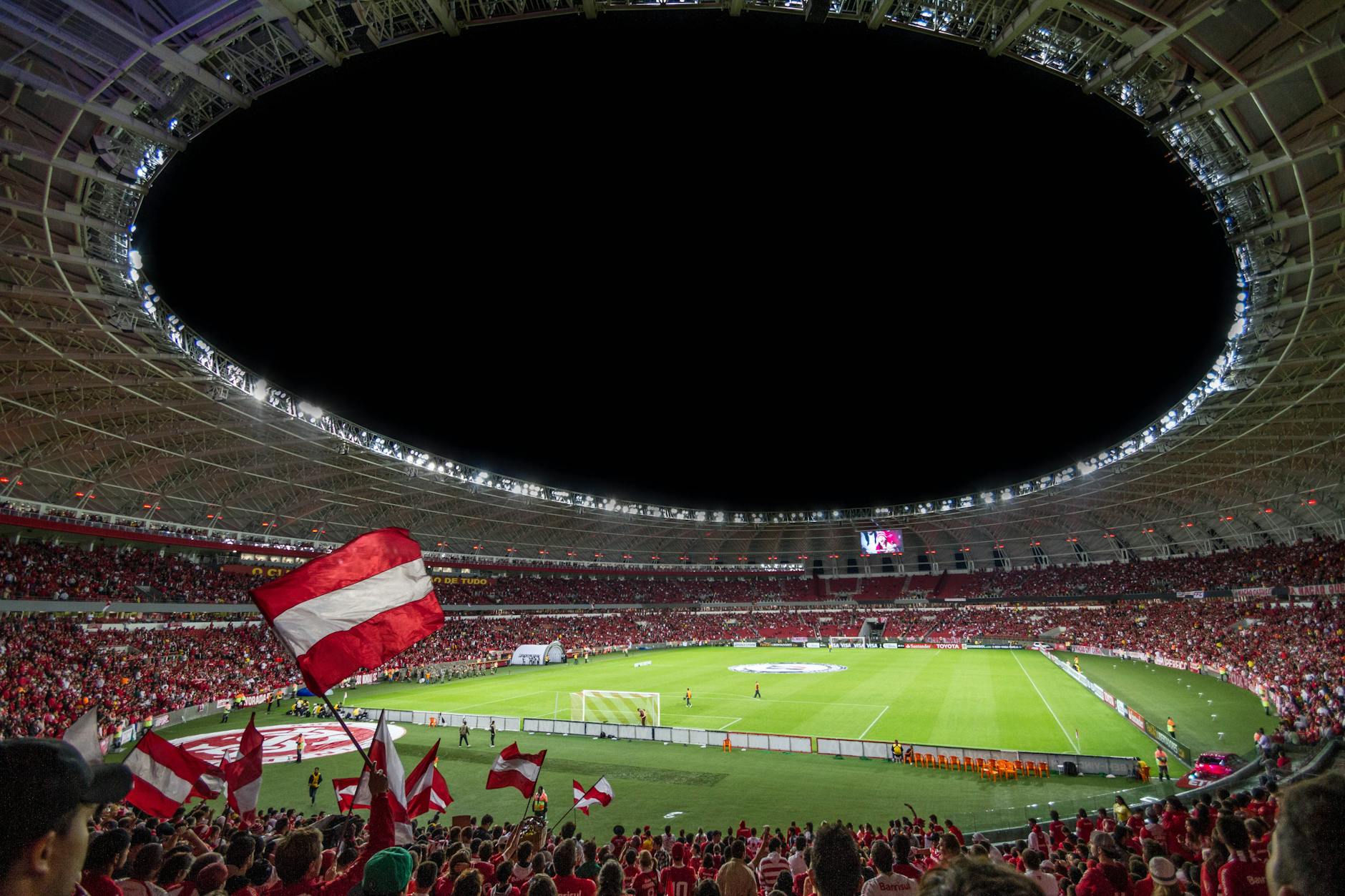This article explores the exciting matchup between the Egypt and Croatia national football teams, diving into their lineups, strategies, and what fans can expect from this thrilling encounter.
The Egypt national football team is known for its rich talent pool, featuring several key players who can turn the tide of a match. Among them, Mohamed Salah stands out as a global superstar, playing for Liverpool in the Premier League. His speed, dribbling skills, and ability to score from almost any position make him a constant threat on the field. Besides Salah, players like Mohamed Elneny and Ahmed Hegazi provide essential support. Elneny’s midfield presence and Hegazi’s defensive capabilities are crucial for Egypt’s strategy against tough opponents like Croatia.
Preparation is everything in football, and Croatia’s national team takes this very seriously. They follow a rigorous training regime that includes tactical drills, physical conditioning, and team-building exercises. Croatia’s coach emphasizes the importance of understanding the opponent’s style of play, which helps the players to adapt their strategies accordingly. The team often engages in friendly matches to fine-tune their skills and test new formations. This meticulous preparation is what has made Croatia a formidable opponent on the international stage.
Egypt often employs a 4-3-3 formation, which allows them to maximize their attacking potential while maintaining a solid defense. This formation facilitates quick transitions from defense to attack, enabling players like Salah to exploit the wings. The midfielders play a vital role in this setup, as they are responsible for linking the defense with the attack. Understanding Egypt’s tactical approach will be key for Croatia as they prepare to face this dynamic team.
Midfielders are the backbone of Egypt’s game plan. They control the tempo of the match and are crucial in both defensive and offensive plays. Players like Mohamed Shawky and Tamer Hossam are known for their ability to distribute the ball effectively and create scoring opportunities. Their vision and passing accuracy can open up defenses, especially against a team like Croatia, which is known for its strong midfield. The midfield battle will be a key area to watch during the match.
Egypt’s defense is often seen as the backbone of their team. With players like Mohamed Nagy and Ali Gabr, they form a solid wall against opposing attackers. Their ability to read the game and make crucial interceptions will be vital against Croatia’s skilled forwards. The defensive strategy often involves maintaining a compact shape to minimize gaps, forcing the opposition to take difficult shots or make risky passes.
Croatia boasts a well-rounded squad with numerous strengths. Their midfield is particularly strong, featuring players like Luka Modric and Ivan Rakitić, who are known for their exceptional passing and vision. Croatia’s ability to control possession and dictate the pace of the game is a significant advantage. They also have a solid defensive line and a potent attacking front, making them a balanced team that can adapt to various styles of play.
When looking at international rankings, both Egypt and Croatia have had their ups and downs. As of the latest FIFA rankings, Croatia is often ranked higher due to their consistent performances in international tournaments. However, Egypt’s passionate play and skilled players make them a team that should not be underestimated. The rankings provide a snapshot of their current form but do not always reflect the intensity of the matchups.
Historically, the matchups between Egypt and Croatia have been few but memorable. Each encounter has showcased the unique styles of both teams, with Egypt often relying on speed and agility, while Croatia focuses on technical skill and teamwork. These historical contexts can give fans insights into how the current teams might perform against each other.
Team chemistry is crucial for success on the pitch. Both Egypt and Croatia invest time in building strong relationships among players, which translates into better on-field performance. Training camps, friendly matches, and team-building activities are essential for fostering this chemistry. The more familiar players are with each other’s playing styles, the better they can execute complex plays during high-pressure situations.
Fans from both sides are buzzing with excitement for this match. Egyptian supporters are hopeful for a strong performance from Salah and the team, while Croatian fans are looking forward to showcasing their tactical prowess. The atmosphere promises to be electric, with passionate chants and colorful displays from both fan bases.
Predictions for the match outcome vary widely. Some analysts favor Croatia due to their higher ranking and recent form, while others believe Egypt’s attacking style could lead to an upset. Fan opinions also differ, creating a buzz of anticipation leading up to the game.
With technology today, following live matches is easier than ever. Fans can catch the game on various sports channels or stream it online. Social media platforms will also provide live updates and highlights, ensuring that no one misses a moment of the action.
The results of this match could have significant implications for both teams in upcoming international tournaments. A victory could boost morale and confidence, setting the stage for future successes. For fans, this match is more than just a game; it’s a glimpse into the potential paths their teams may take in future competitions.
What Are the Key Players in Egypt’s National Team?
When it comes to football, Egypt’s national team is a powerhouse in African sports, known for its rich history and talented players. The current squad is filled with individuals who can turn the tide of a match with their skills and determination. Let’s delve deeper into the key players who are crucial for Egypt’s success on the international stage.
Among the most prominent figures in Egypt’s national team is Mohamed Salah, a name that resonates with football fans worldwide. Playing for Liverpool in the English Premier League, Salah’s speed, agility, and goal-scoring ability make him a constant threat to opposing defenses. His experience in high-pressure situations is invaluable, and he brings a level of confidence that can inspire his teammates.
Another notable player is Mohamed Elneny, who plays as a midfielder. His role is pivotal in controlling the tempo of the game and linking defense with attack. Elneny’s ability to read the game and make crucial passes can open up opportunities for forwards like Salah. Additionally, his defensive work rate helps solidify Egypt’s midfield, making it harder for opponents to penetrate.
Don’t overlook Ahmed Hegazi, a stalwart in Egypt’s defense. His height and aerial ability make him a formidable presence during set pieces. Hegazi’s leadership on the field is crucial, especially during tense moments in matches. He often organizes the backline, ensuring that the team maintains its shape and discipline, which is essential against teams with strong attacking players.
The synergy between these players is what sets Egypt apart from other teams. For instance, Salah’s pace on the wings can stretch the opposition, creating spaces for Elneny and Hegazi to exploit. When Salah makes those darting runs, it often draws defenders away, allowing midfielders to move into open spaces. This tactical movement is vital for Egypt’s attacking strategy.
Moreover, the chemistry among the players is built through years of playing together. They understand each other’s strengths and weaknesses, which allows for seamless transitions during matches. This familiarity can be a game-changer, especially in high-stakes situations where every second counts.
In addition to the established stars, Egypt’s national team is also home to some emerging talents. Players like Mostafa Mohamed and Mahmoud Hassan ‘Trezeguet’ have shown great promise and can provide fresh energy to the squad. Their youth and enthusiasm can complement the experience of seasoned players, creating a balanced team dynamic.
It’s important for fans to keep an eye on these rising stars, as they may become key players in future tournaments. The blend of youth and experience is crucial for any national team aiming for success on the international stage.
In summary, Egypt’s national team is packed with talent, from seasoned veterans to emerging stars. Each player brings something unique to the table, making them a formidable opponent in any match. With the right strategies and teamwork, Egypt has the potential to shine brightly in upcoming competitions.
How Does Croatia’s National Team Prepare for Matches?
When it comes to football, preparation is everything. Croatia’s national team has a reputation for being one of the most disciplined and strategically astute teams in international football. Their approach to preparing for matches, especially against formidable opponents like Egypt, is a blend of rigorous training routines, tactical analysis, and mental conditioning. Let’s dive deeper into how Croatia gears up for these crucial encounters.
Training for the Croatian national team is not just about physical fitness; it’s a comprehensive program that includes technical drills, tactical exercises, and conditioning. The coaching staff emphasizes the importance of ball control, passing accuracy, and positional play. Players engage in daily training sessions that last several hours, focusing on both individual skills and team dynamics. For instance, they often practice set pieces, which can be game-changers in tight matches.
Moreover, Croatia’s training camps are meticulously planned. The coaching staff analyzes previous matches to identify areas for improvement. This analysis is crucial, especially when facing teams like Egypt that have their own unique style of play. The players also undergo physical conditioning to ensure they can maintain peak performance throughout the match. This includes strength training and endurance exercises, which are essential for competing at a high level.
Tactical preparation is another cornerstone of Croatia’s strategy. The coaching staff studies the strengths and weaknesses of their opponents, including Egypt. They develop specific game plans that may involve altering formations or adjusting player roles based on the opponent’s style. For example, if Egypt is known for its fast counter-attacks, Croatia might focus on enhancing their defensive shape and ensuring that their midfielders are well-positioned to intercept passes.
During team meetings, players review video footage of both their own performances and those of Egypt. This helps them understand what to expect from their opponents and how to exploit any weaknesses. The tactical flexibility that Croatia exhibits is often a key factor in their success on the international stage.
Mental preparation is just as vital as physical and tactical training. Croatia’s players often engage in mental conditioning exercises to enhance focus and resilience. This includes visualization techniques, where players imagine themselves executing plays successfully. Additionally, team-building activities foster a sense of unity and camaraderie, which translates onto the pitch.
Players are also encouraged to discuss their feelings and concerns leading up to a match. This open communication helps build trust among teammates, allowing them to perform better under pressure. The combination of physical training, tactical awareness, and mental fortitude equips Croatia’s national team to face any challenge, making them a formidable opponent for teams like Egypt.
In summary, Croatia’s preparation for matches is a multi-faceted approach that emphasizes physical training, tactical analysis, and mental conditioning. This comprehensive strategy not only prepares them for the challenges posed by teams like Egypt but also instills a strong sense of teamwork and resilience among the players.
What Tactical Formation Does Egypt Use?
When it comes to international football, the tactical formations employed by teams can greatly influence the outcome of a match. Egypt’s national team is known for its distinctive formations that not only enhance their gameplay but also provide a strategic advantage against formidable opponents like Croatia. Understanding these formations can give fans and analysts a better grasp of how Egypt approaches each game.
Egypt often utilizes a 4-3-3 formation, which is versatile and allows for both defensive solidity and attacking flair. This formation consists of four defenders, three midfielders, and three forwards, providing a balanced approach. The back line usually features two center-backs and two full-backs who can push forward to support the attack while maintaining their defensive responsibilities. This setup is crucial when facing teams with strong attacking prowess, like Croatia.
In the midfield, Egypt’s three players often include a combination of defensive and attacking midfielders. One of the midfielders typically plays a more defensive role, often tasked with breaking up opposition plays and distributing the ball effectively. The other two are usually more dynamic, capable of linking up with the forwards and creating goal-scoring opportunities. This balance is key to Egypt’s gameplay, allowing them to transition quickly from defense to attack.
When it comes to the forwards, Egypt tends to utilize a central striker supported by two wingers. This allows them to stretch the opposition defense and create space for through balls and crosses. Players like Mohamed Salah are often positioned on the wings, making them a constant threat with their pace and dribbling skills. This tactical setup not only enhances their attacking capabilities but also provides options for counter-attacks, which can be particularly effective against teams that dominate possession.
Another aspect of Egypt’s tactical formation is their defensive organization. The team often employs a compact shape when defending, making it difficult for opponents to penetrate their lines. This is especially important when facing teams like Croatia, who are known for their intricate passing and movement. By maintaining a disciplined structure, Egypt can effectively neutralize threats and transition quickly into their own attacking plays.
In summary, Egypt’s tactical formation, primarily the 4-3-3, plays a significant role in their strategy. By understanding how they organize their players, fans and analysts can gain valuable insights into their gameplay and how they plan to tackle strong opponents like Croatia. This formation not only highlights the strengths of individual players but also emphasizes the importance of teamwork and strategic planning in football.
How Do Egypt’s Midfielders Contribute?
When it comes to football, the role of midfielders is often underestimated, yet they are the heart of the team. In the context of the Egypt national football team, their midfielders are not just players; they are the **playmakers** who dictate the pace and style of the game. Against formidable opponents like Croatia, the performance of Egypt’s midfielders can be a **game-changer**.
Egypt’s midfielders possess a unique blend of skills that make them invaluable on the pitch. First and foremost, their ability to control the ball under pressure is exceptional. This skill allows them to maintain possession and create opportunities, even when faced with aggressive defenders. Moreover, their vision of the game enables them to make quick, accurate passes that can break through defensive lines.
Another critical aspect is their stamina. Midfielders often run the most during a match, covering large distances to support both offensive and defensive plays. This tireless work ethic is essential, especially against a team like Croatia, which is known for its tactical discipline and counter-attacking prowess.
The midfielders play a crucial role in **shaping Egypt’s game strategy**. They act as the link between defense and attack, facilitating transitions that can catch opponents off guard. Their ability to read the game allows them to anticipate the movements of both teammates and adversaries, enabling them to make strategic decisions that can lead to scoring opportunities.
For instance, when Egypt is on the offensive, midfielders often push forward to support strikers, creating an overload in the attacking third. Conversely, during defensive phases, they drop back to help shield the backline, showcasing their versatility. This dual role is vital against a technically adept team like Croatia, where maintaining balance is key.
- Passing Accuracy: The ability to make precise passes is crucial for maintaining possession and setting up attacks.
- Defensive Skills: Midfielders must also be adept at tackling and intercepting passes to break up the opponent’s play.
- Creativity: They need to think outside the box, creating chances for forwards, especially in tight situations.
- Leadership: Many midfielders take on leadership roles, guiding younger players and making tactical decisions on the fly.
In conclusion, Egypt’s midfielders are not just players in the lineup; they are the backbone of the team’s strategy. Their ability to control the game and adapt to various situations makes them essential in the upcoming clash against Croatia. As fans, we can expect to see a dynamic performance that leverages their skills to gain an advantage on the pitch.
What Is the Role of Egypt’s Defense?
The role of Egypt’s defense in football is often underestimated, yet it serves as the backbone of the team’s overall strategy. In a match against a formidable opponent like Croatia, Egypt’s defensive tactics will be crucial in mitigating the threats posed by their attacking players. With a history of strong defensive performances, Egypt must capitalize on this strength to secure a favorable outcome.
Egypt’s defensive line is designed to operate efficiently under pressure. The players are trained to maintain composure, especially when facing aggressive attacks. One of the key aspects of their defense is communication. Defenders must constantly talk to each other to ensure they are in sync, making necessary adjustments to their positions based on the movement of the opponents. This is particularly important against a team like Croatia, known for its fluid attacking style.
Moreover, Egypt’s defensive strategy often involves a zonal marking system. This means that instead of marking individual players, defenders cover specific areas of the pitch. This approach can be beneficial in neutralizing Croatia’s quick passing and movement. By anticipating where the ball is likely to go, Egypt can intercept passes and regain possession more effectively.
Egypt boasts a roster of defenders who possess a range of key attributes that are vital for a successful defense. For instance, many of the defenders are not only strong in tackling but also have excellent speed and agility. This allows them to recover quickly if they are caught out of position, which can happen against a fast-paced team like Croatia.
Additionally, aerial ability is another significant attribute. Egypt’s defenders are trained to win headers during set pieces, both defensively and offensively. This is crucial, especially when facing Croatia, who often utilizes set pieces as a scoring opportunity. By winning these aerial duels, Egypt can prevent Croatia from capitalizing on their height advantage.
Team cohesion is critical for any defensive unit. Egypt’s defenders must work as a unit, understanding each other’s strengths and weaknesses. This is achieved through extensive training sessions where they practice various defensive scenarios. The more they train together, the better they become at anticipating each other’s movements, which is essential when facing a coordinated attack from a skilled team like Croatia.
Furthermore, the role of the goalkeeper cannot be overlooked. A solid goalkeeper can make all the difference in high-pressure situations, providing the last line of defense. Egypt’s goalkeeper must be vocal and assertive, directing the defense and making crucial saves when necessary. This synergy between the goalkeeper and defenders is vital for Egypt to withstand Croatia’s offensive onslaught.
In conclusion, Egypt’s defense will play a pivotal role in determining the outcome of their matchup against Croatia. By focusing on communication, zonal marking, and team cohesion, Egypt can enhance their chances of neutralizing Croatia’s attacking threats. Fans will be watching closely to see if Egypt’s defensive strategy can withstand the pressure and lead them to victory.
What Are the Strengths of Croatia’s Lineup?
When it comes to international football, Croatia has carved a niche for itself with a squad that’s both talented and versatile. The team is known for its tactical flexibility, strong technical skills, and a deep bench of players who can step up when needed. In this article, we will explore the various strengths that make Croatia a formidable opponent, especially when facing a competitive team like Egypt.
One of the most significant strengths of Croatia’s lineup is the technical proficiency of its players. Many Croatian footballers play in some of the top leagues across Europe, which not only enhances their skills but also exposes them to high-pressure situations. Players like Luka Modrić and Ivan Perišić have shown time and again that they can perform on the biggest stages.
Another strength lies in Croatia’s midfield dominance. The midfielders are not just playmakers; they are also defensively astute, allowing the team to transition quickly from defense to attack. This ability to control the midfield often dictates the pace of the game, making it difficult for opponents to establish their rhythm.
Croatia is known for its tactical flexibility, which allows them to adapt their style of play based on the opponent. They can switch between formations, such as a 4-3-3 or a 4-2-3-1, depending on the match situation. This adaptability can catch teams like Egypt off guard, especially if they are not prepared for a sudden change in tactics.
Moreover, Croatia’s ability to exploit the flanks is another key strength. With speedy wingers who can deliver precise crosses into the box, they pose a constant threat to opposing defenses. This width allows their strikers to find space and create scoring opportunities, making them a multi-dimensional attacking force.
Team chemistry is often overlooked, but it plays a crucial role in Croatia’s success. The players have a deep understanding of each other’s playing styles, which comes from years of playing together at both club and international levels. This familiarity translates into seamless coordination on the pitch, allowing for quick decision-making and effective communication.
Additionally, Croatia’s squad features a mix of experienced veterans and young talent. This balance ensures that there’s a wealth of knowledge on the field while also injecting youthful energy and enthusiasm into the team dynamic. This combination can be particularly advantageous in high-stakes matches against teams like Egypt.
In conclusion, Croatia’s lineup is formidable due to its technical skills, tactical flexibility, and strong team chemistry. These strengths not only enhance their chances of winning against competitive teams but also make them a joy to watch for football fans around the world.
How Do Egypt and Croatia Compare in International Rankings?
When it comes to international football, rankings play a crucial role in understanding how teams are perceived globally. A look at the latest FIFA rankings reveals a lot about the strength and weaknesses of teams like Egypt and Croatia. In this article, we will explore how these two nations stack up against each other in terms of their rankings, and what that could mean for their upcoming match.
The FIFA rankings are updated regularly and provide a snapshot of a team’s performance over a period of time. As of the latest update, Egypt is positioned at around 45th place, while Croatia holds a much higher rank at approximately 7th. This significant difference in rankings can reflect various factors, including recent match results, the strength of opponents faced, and overall team performance.
Egypt’s ranking, while not as high, does not necessarily indicate a weak team. They have shown resilience and skill in recent matches, especially during the African Cup of Nations. Their ability to compete at a high level is evident, but they face challenges in breaking into the top tier of international football. On the other hand, Croatia’s ranking is a testament to their consistent performance on the world stage, including a remarkable run to the finals in the 2018 World Cup. Their experience in high-pressure matches gives them an edge.
The psychological impact of rankings on teams cannot be understated. For Egypt, being lower in the rankings can serve as a motivating factor. Players might feel the need to prove themselves and showcase their talent against a more highly ranked opponent like Croatia. This can lead to a more aggressive and determined gameplay style, which could surprise fans and analysts alike.
Conversely, Croatia’s higher ranking might bring its own pressures. As a favored team, they might face expectations to perform well, which can sometimes lead to complacency. However, their seasoned players are typically aware of these dynamics and prepare accordingly, often using their experience to maintain focus and intensity during matches.
Looking back at historical encounters between Egypt and Croatia can provide insight into how rankings translate into performance on the pitch. While they may not have faced each other frequently, past matches often reveal trends and tactical approaches that can be critical during their upcoming clash. Understanding how these teams have fared against similar opponents can also help predict their strategies.
In conclusion, the FIFA rankings offer a lens through which fans can gauge the strength of Egypt and Croatia. While rankings are not the sole determinant of match outcomes, they provide a context that can enhance our understanding of the game. As both teams prepare for this exciting encounter, the implications of their rankings will undoubtedly play a role in shaping their strategies and performance on the field.
What Are the Historical Matchups Between Egypt and Croatia?
The history of football encounters between teams often holds significant weight, influencing the present performance of players and strategies. In this article, we delve into the historical matchups between the Egypt National Football Team and the Croatia National Football Team. By examining their past encounters, we can glean insights that might shape the expectations for their future meetings.
When we look back at the historical matchups between Egypt and Croatia, it’s clear that there have been some memorable moments. The first meeting between these two teams took place in a friendly match in 1998, which ended in a 1-1 draw. This initial encounter set the tone for a competitive rivalry, showcasing the emerging talents of both nations.
Over the years, Egypt and Croatia have faced each other a few more times, with each match offering unique narratives. In 2006, they met again in another friendly, where Croatia triumphed with a 2-0 victory. This match was particularly significant for Croatia as it showcased their tactical discipline and attacking prowess, something that would become their hallmark in international competitions.
Fast forward to 2018, during the FIFA World Cup preparations, Egypt and Croatia clashed once more. This time, Croatia emerged victorious yet again, winning 3-1. This match was crucial for both teams as they were gearing up for the World Cup, and the results reflected the growing strength of Croatia on the international stage, while Egypt was still finding its footing without its star player, Mohamed Salah.
Fans often look to these historical encounters for clues about what to expect in future matches. For instance, Croatia’s consistent victories might suggest a psychological edge when facing Egypt. However, Egypt has a rich footballing history and a passionate fan base that can inspire players to perform at their best, making any match between these two teams unpredictable.
Moreover, the evolution of both teams is also fascinating. Croatia has developed into a formidable force in world football, reaching the finals of the 2018 World Cup. Meanwhile, Egypt, with its deep-rooted football culture, continues to produce talented players who can change the course of a game. The blend of history and current form makes for an intriguing matchup that fans should look forward to.
As we anticipate their next encounter, it’s essential to remember that while history provides context, each match is a new chapter. Fans should keep an eye on how past performances influence the players and coaching strategies. The excitement of football lies in its unpredictability, and the upcoming match between Egypt and Croatia promises to be no different.
How Is Team Chemistry Developed in Both Teams?
Team chemistry is a crucial component in football, especially when it comes to high-stakes matches like the one between Egypt and Croatia. Both teams have their unique ways of fostering a sense of unity and collaboration among players, which can ultimately lead to better performance on the field. Let’s dive deeper into how these two teams develop their chemistry, ensuring they are in sync when it matters the most.
In Egypt, the national team places great emphasis on team-building exercises that go beyond just practice sessions. They often engage in off-field activities, such as team dinners and bonding retreats, which help players get to know each other on a personal level. This is crucial because understanding each other’s personalities can lead to better communication during games.
Moreover, the coaching staff plays a vital role in this process. Coaches often encourage open communication and foster an environment where players feel comfortable expressing their thoughts and concerns. This approach not only builds trust among team members but also enhances their ability to work together under pressure. One of the most effective tactics Egypt employs is regular team meetings where players discuss strategies and share feedback. This ensures everyone is on the same page and understands their roles in the team’s overall game plan.
On the other hand, Croatia takes a more structured approach to developing team chemistry. The Croatian national team is known for its rigorous training camps that last several weeks leading up to major tournaments. During these camps, players are not only focused on physical training but also on developing a strong mental connection with one another.
One of the standout practices is the use of team-building exercises that involve problem-solving tasks and challenges. These activities are designed to push players out of their comfort zones, forcing them to rely on one another. This can lead to stronger bonds, which are essential during critical moments in a match. Additionally, Croatia focuses on integrating younger players with veterans, allowing for a transfer of knowledge and experience that is invaluable for team cohesion.
Both Egypt and Croatia recognize that effective communication is the backbone of team chemistry. Players are encouraged to talk to each other on and off the field. This is especially important during matches when quick decision-making can be the difference between victory and defeat. For instance, clear communication can help in defensive formations or when launching counter-attacks.
Furthermore, the use of technology has also enhanced communication. Video analysis sessions allow players to review their performances together, leading to constructive discussions. This not only improves individual skills but also strengthens the team’s overall strategy.
In conclusion, the development of team chemistry in both Egypt and Croatia is a multifaceted process that combines off-field bonding, structured training, and effective communication. As both teams prepare for their upcoming match, the chemistry they have built will undoubtedly play a significant role in their performance on the field.
What Are the Fans’ Expectations for This Match?
Football is more than just a game; it’s a passion that unites people from all walks of life. As the Egypt National Football Team prepares to face off against the Croatia National Football Team, fans from both nations are buzzing with excitement and anticipation. They come to the stadium not just to watch the match, but to be part of an atmosphere that can only be created by dedicated supporters. In this article, we delve into what both sets of fans are looking forward to in this thrilling encounter.
Egyptian fans are known for their unwavering loyalty and vibrant support. They expect to see their team play with heart and determination. Many fans are particularly excited to see key players like Mohamed Salah, who has the ability to change the game in a matter of moments. The hope is that he can deliver some of his trademark skills, dazzling runs, and crucial goals. Fans also look forward to the team’s defensive strategy, which they hope will effectively counter Croatia’s attacking prowess.
Moreover, the atmosphere created by the fans is something that players feed off. The Egyptian supporters are skilled at creating an electrifying environment, with chants and songs that resonate throughout the stadium. They believe that their vocal support can give the players an extra boost, pushing them to perform better. The excitement is palpable, and fans are eager to see their team make a strong statement on the international stage.
On the other side, Croatian fans are equally enthusiastic. They are known for their passionate support and expect their team to showcase technical brilliance and tactical discipline. Many fans are eager to see stars like Luka Modrić and Ivan Perišić, who have proven their mettle in high-pressure situations. Croatian supporters hope to see their players dominate possession and create scoring opportunities, reflecting their team’s renowned playing style.
Additionally, Croatian fans take great pride in their national team’s history and achievements. They come to matches not just to cheer but to celebrate their culture and identity. The fans are optimistic about the team’s chances and are hoping for a victory that would further cement Croatia’s status in international football. The chants, flags, and colors they bring to the stadium create a vibrant spectacle that adds to the match-day experience.
The interaction between fans from both sides plays a crucial role in shaping the match atmosphere. As the game unfolds, the rivalry intensifies, and the cheers and jeers can be felt throughout the stadium. This dynamic can influence the players on the field, creating a unique energy that is hard to replicate elsewhere. Both sets of supporters have their own styles, but what unites them is their love for the game. Fans are not just spectators; they are an integral part of the experience, and their expectations can often translate into motivation for the players.
In summary, as the Egypt and Croatia national teams prepare to clash, the expectations of their fans are high. Whether it’s the hope for dazzling performances, strategic plays, or simply a thrilling match, the passion from both sides is sure to create an unforgettable atmosphere.
What Are the Predictions for the Match Outcome?
The upcoming match between the Egypt National Football Team and the Croatia National Football Team has generated a buzz among fans and analysts alike. With both teams showcasing impressive talent and tactical prowess, the predictions for the match outcome are as diverse as the supporters themselves. Let’s delve into what the experts are saying and what statistics reveal about this exciting encounter.
When it comes to predicting the outcome of a football match, opinions can vary significantly. Some analysts lean towards Egypt’s strong attacking presence, while others highlight Croatia’s tactical discipline and experience on the international stage. Statistical analyses often play a crucial role in these predictions, as they provide insights based on past performances and player statistics.
For instance, Egypt has shown remarkable form in recent matches, particularly with their star player, Mohamed Salah, leading the charge. His ability to influence the game cannot be understated. Analysts suggest that if Salah can find the back of the net early, it could set the tone for the rest of the match. On the other hand, Croatia’s midfield, led by Luka Modrić, is known for its ability to control the tempo of the game. This could potentially disrupt Egypt’s rhythm and create opportunities for Croatia to capitalize on counter-attacks.
Another aspect to consider is the historical performance of both teams against similar opponents. Croatia has faced tough teams and often emerged victorious due to their solid defensive structure and quick transitions. However, Egypt has a knack for surprising their opponents with unexpected plays and a relentless attacking style. This unpredictability is what makes the match so intriguing.
- Expert Predictions: Some analysts predict a narrow victory for Croatia, citing their experience in high-pressure situations.
- Statistical Insights: Historical data shows that both teams have similar win-loss records against top-tier teams, making this match even more unpredictable.
- Fan Sentiment: Many fans believe in Egypt’s ability to pull off an upset, especially with the home crowd behind them.
Moreover, the match’s outcome could hinge on key moments, such as set pieces or penalties. In tight games like this, every detail matters. Fans and analysts alike are eagerly awaiting kickoff to see how these predictions play out on the field. Will it be Egypt’s day, or will Croatia’s experience shine through? Only time will tell.
Ultimately, this match is not just about the scoreline; it’s about the passion, the strategies, and the stories that unfold on the pitch. As fans gear up for this thrilling encounter, the predictions will continue to evolve, reflecting the dynamic nature of football.
How Can Fans Follow the Match Live?
In today’s fast-paced digital world, keeping up with live sports events has become incredibly easy and accessible. For fans eagerly anticipating the Egypt vs. Croatia match, there are numerous ways to ensure they don’t miss a single moment of the action. From traditional television broadcasts to innovative online streaming options, the choices are abundant.
First off, many fans prefer watching matches on television. Major sports networks often air international football games, including the highly anticipated clashes like Egypt vs. Croatia. Channels like ESPN, beIN Sports, and local broadcasters in both Egypt and Croatia will likely cover the match live. It’s essential to check the schedule ahead of time to avoid any last-minute surprises. You might also want to consider setting up reminders or alerts on your phone so you can tune in right when the game starts.
For those who are always on the go, online streaming platforms offer a fantastic alternative. Websites and apps like FuboTV, Hulu Live, and even social media platforms such as Facebook and YouTube may provide live streams of the match. Subscribing to these services can give you access to not just this match but many others in the future. However, make sure to check if they are available in your region, as some services may have geographical restrictions.
Another great way to follow the game is through live text commentary and updates. Websites like ESPN, BBC Sport, and Goal.com provide minute-by-minute updates, which can be very helpful if you can’t watch the match live. These platforms often include insightful analysis and player statistics that can enhance your viewing experience, even if you’re just following along via text.
Furthermore, social media is a powerful tool for real-time updates. Following the official accounts of both the Egypt National Football Team and the Croatia National Football Team on platforms like Twitter and Instagram can keep you in the loop regarding live scores, player performances, and fan reactions. Engaging with other fans through hashtags related to the match can also enrich your experience, creating a sense of community and excitement.
Lastly, if you’re looking for a more immersive experience, consider joining a local sports bar or fan club. Many establishments will host viewing parties for significant matches, allowing fans to gather, cheer, and share the excitement together. This is not only a fun way to watch the game but also a great opportunity to meet fellow football enthusiasts.
In conclusion, whether you choose to watch the match on TV, stream it online, or follow through social media and live updates, there are countless ways to stay connected to the action. So gear up, get your snacks ready, and prepare to enjoy every thrilling moment of the Egypt vs. Croatia game!
What Are the Implications of This Match for Future Tournaments?
The upcoming match between the Egypt and Croatia national football teams is not just another friendly game; it’s a pivotal moment that could shape the future of both teams in international tournaments. With the stakes high, let’s delve into the implications of this match for both nations.
Egypt has a rich footballing history, and their aspirations for the World Cup are always at the forefront. A victory against a strong team like Croatia could boost their confidence significantly. The Egyptian team, led by their star player, Mohamed Salah, would be looking to showcase their skills on an international platform. A win here could solidify their position in the upcoming qualifiers and, more importantly, build momentum heading into the World Cup. The team needs to not only win but also perform impressively to earn respect and recognition. This match could serve as a crucial test of their strategy and resilience.
For Croatia, the implications of this match are equally significant. Having reached the finals of the 2018 World Cup, the Croatian team is keen to maintain their status as a football powerhouse. A strong performance against Egypt could signal their readiness for the upcoming Euro 2024. With key players like Luka Modrić and Ivan Perišić in the lineup, Croatia will be looking to assert their dominance. They need to build chemistry and cohesion among the players, and this match could be the perfect opportunity to test their tactical formations. A win would not only boost their morale but also send a message to other teams about their capabilities.
The outcome of this match could have long-term effects on the FIFA rankings for both teams. A win for Egypt could see them climb the ranks, improving their chances of seeding in future tournaments. Conversely, Croatia needs to maintain or improve their ranking to secure favorable matchups in upcoming competitions. Rankings are not just numbers; they influence the perception of a team’s strength and can impact sponsorships and fan support. Thus, both teams have a lot riding on this game, making it an exciting encounter for fans and players alike.
Fans play a crucial role in the atmosphere of any football match. The excitement and anticipation surrounding this game are palpable. Egyptian fans are hoping for a display of skill and determination, while Croatian supporters are eager to see their team assert its strength. The rivalry and passion from both sides can elevate the match experience, making it not just about the score but about national pride and unity. Fans know that the outcome could influence their team’s journey in upcoming tournaments, and they are ready to rally behind their players.
In conclusion, the implications of this match extend far beyond just a win or loss. Both Egypt and Croatia have much to gain or lose, and the excitement surrounding this encounter is a testament to the passion of football. As the teams prepare to face off, all eyes will be on the pitch, anticipating the potential impact on their futures in international football.
Frequently Asked Questions
- What are the key players to watch in Egypt’s national team?
Egypt’s national team features standout players like Mohamed Salah, who is known for his incredible speed and goal-scoring ability. Additionally, players like Mohamed Elneny and Ahmed Hegazi bring experience and skill to the squad, making them crucial in both defense and midfield.
- How does Croatia prepare for their matches?
Croatia’s preparation involves rigorous training sessions that focus on tactical drills and physical conditioning. They analyze their opponents extensively to develop strategies that leverage their strengths while addressing weaknesses, ensuring they are ready for any challenge.
- What tactical formation does Egypt typically use?
Egypt often employs a 4-3-3 formation, which allows for a strong midfield presence and quick transitions to attack. This formation helps them maintain possession while also providing defensive solidity against teams like Croatia.
- How do Egypt’s midfielders contribute to their gameplay?
Egypt’s midfielders are vital as they control the tempo of the game, linking defense to attack. Their ability to distribute the ball efficiently can create scoring opportunities and help maintain possession, crucial against a team with Croatia’s attacking talent.
- What are the strengths of Croatia’s lineup?
Croatia boasts a well-rounded squad with exceptional technical skills and tactical awareness. Players like Luka Modrić and Ivan Perišić provide creativity and experience, making it difficult for opponents to contain their attacking plays.
- How do Egypt and Croatia compare in international rankings?
The FIFA rankings give a snapshot of each team’s performance on the global stage. As of the latest rankings, Croatia is typically ranked higher due to their consistent performances in international tournaments, but Egypt has shown significant improvement in recent years.
- What are the fans’ expectations for the match?
Fans from both sides are eager to see their teams deliver an exciting and competitive match. Egyptian supporters hope to see their stars shine, while Croatian fans are looking for a strong display of skill and teamwork.
- How can fans follow the match live?
Fans can catch the Egypt vs. Croatia match live through various sports networks and streaming platforms. Social media updates and live commentary will also keep supporters engaged with real-time action.
- What are the implications of this match for future tournaments?
The outcome of this match could significantly impact both teams’ preparations for upcoming international tournaments. A win could boost morale and confidence, setting the stage for future success on the world stage.












